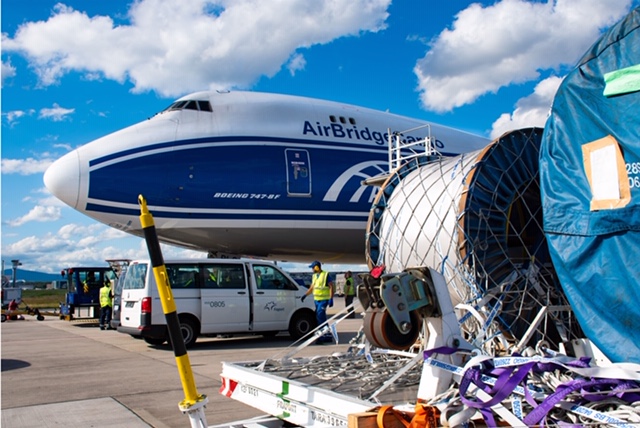AirBridgeCargo extends handling partnership with Frankfurt Cargo Services
03 / 12 / 2021

Boeing 747-8F Freighter of AirBridgeCargo at Frankfurt Airport
AirBridgeCargo Airlines (ABC) has renewed its cargo handling contract at Frankfurt/Main Airport with Frankfurt Cargo Services (FCS).
FCS, a subsidiary of Worldwide Flight Services (WFS), is the largest independent cargo handler at the German hub and has served ABC since 2008.
The Russian airline currently operates up to 15 Boeing 747 freighter flights a week from Frankfurt to its hubs at Moscow’s Domodedovo and Sheremetyevo airports, connecting customers to more than 30 cargo destinations in Europe, Asia and North America.
Said Diana Schöneich, senior director European Region at ABC: “Frankfurt is one of the most important airports in AirBridgeCargo’s intercontinental route network. Thanks to our reliable and close cooperation with Frankfurt Cargo Services, we offer our customers quick and easy access to key cargo markets globally, including for our specialist products.
“Solutions such as FCS’ mobile SuperBox refrigeration unit, for example, support our growing pharmaceutical volumes and means we can respond optimally to our customers’ requirements as well as trends in the market.”
FCS in Cargo City South at Frankfurt has direct connection between the airside apron and the landside cargo handling operation, shortening cargo processing times.
With volumes increasing continuously, FCS’ proven capability of handling temperature- sensitive pharmaceutical products was one of the “decisive factors” in ABC’s decision to extend its partnership.
With Good Distribution Practice (GDP) and IATA CEIV Pharma certifications, FCS’ Frankfurt cargo operation is fully compliant with the cargo handling requirements of both airlines and pharmaceutical companies.
Added Claus Wagner, managing director of FCS: “In our 13 years of partnership so far, AirBridgeCargo and FCS have both significantly expanded our cargo operations in Frankfurt, and we have worked closely together to overcome major challenges, including, of course, the coronavirus crisis and its impact on global supply chains.”














